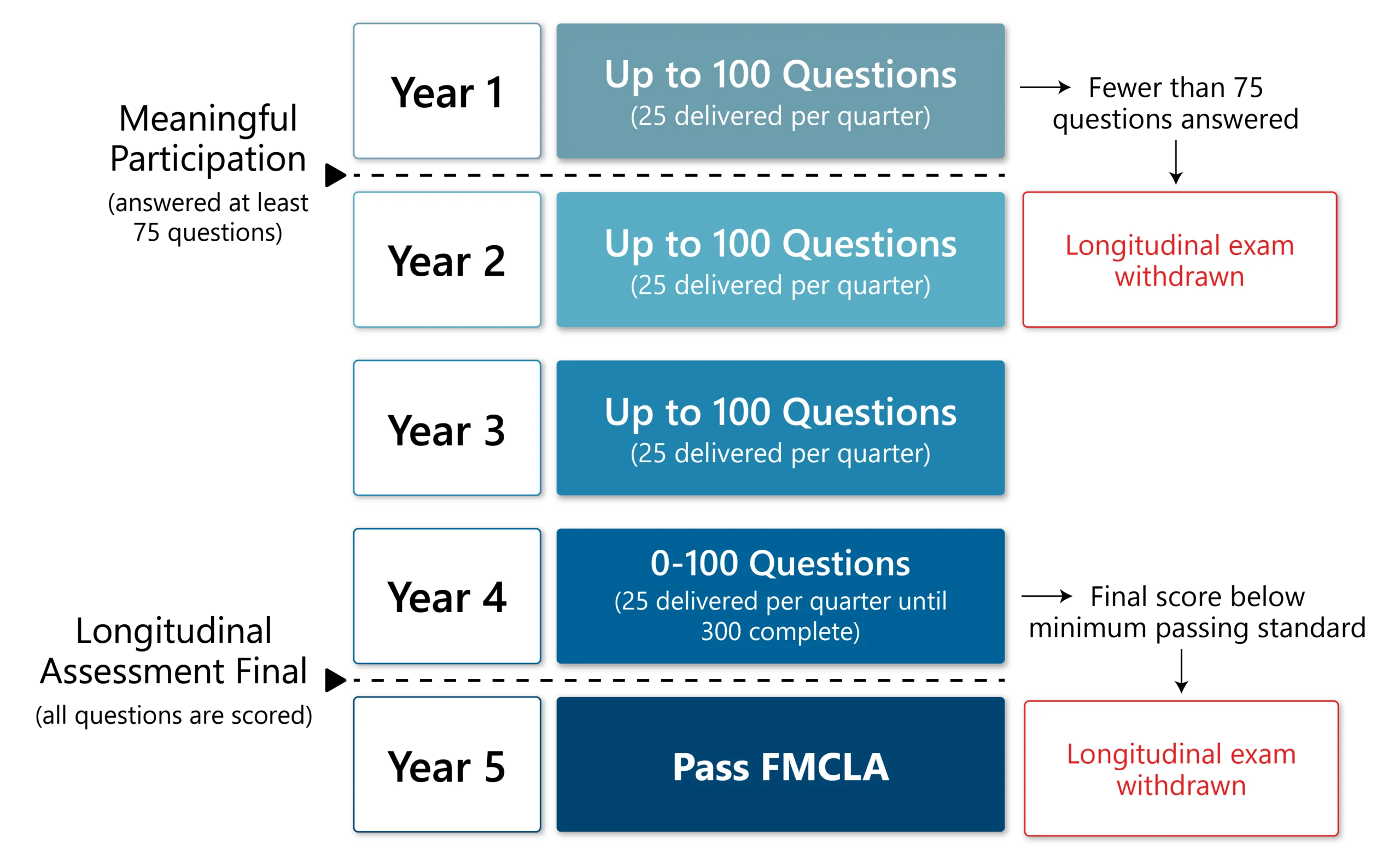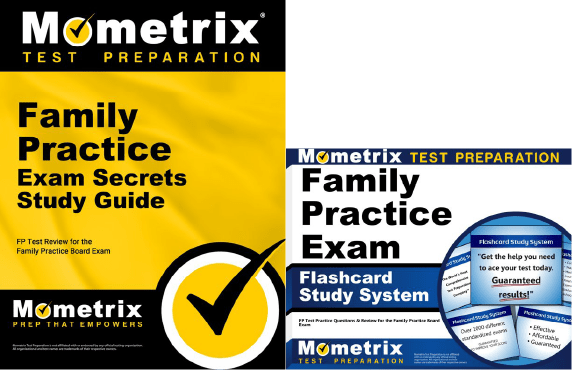If you need help studying for the Family Medicine Certification Examination (FMCE) or just want some more information about what the exam is like, you’ve come to the right place.
Click below to take a free FMCE practice test!
What’s on the Exam?
The FMCE is unique in that you have two testing options: longitudinal and one-day.
Longitudinal Assessment
Instead of the usual process of taking the full test in one sitting, the longitudinal assessment allows you to take the exam over the course of 3 to 4 years!
You’ll receive 25 questions to answer every quarter (100 per year), and you can choose any day, time, and location to answer them. This means that you can answer all 25 questions at once, or you can space them out throughout the quarter. Whichever way you do it, each question is timed at 5 minutes.
If you don’t answer at least 75 questions within the first year, your test will be revoked and you’ll have to take the one-day version of the test instead.

Here’s a closer look at each section of the exam:
1. Acute Care and Diagnosis
35% of the exam
You may also be asked to provide a diagnosis based on the information presented or suggest an initial treatment plan.
2. Chronic Care Management
25% of the exam
You should also expect things like medication management, lifestyle counseling, monitoring disease progression, coordinating care with specialists, and addressing comorbidities to be asked about.
3. Emergent and Urgent Care
20% of the exam
You’ll be asked to make critical patient management decisions within a limited timeframe. This includes prioritizing evaluation and treatment steps, recognizing life-threatening conditions, and initiating appropriate interventions.
4. Preventive Care
15% of the exam
Specifically, you’ll be questioned on topics like routine screenings, immunizations, health promotion counseling, and risk factor modification.
5. Foundations of Care
5% of the exam
One-Day Exam
This version of the test is the usual test-taking experience: you go to a testing center and take the full exam in one sitting (with some breaks built in here and there).
You’ll be given four sets of questions to answer, with an optional break between each set. Each set contains 75 multiple-choice questions and is timed at 95 minutes.
Here’s a closer look at each section of the exam:
1. Acute Care and Diagnosis
35% of the exam
You may also be asked to provide a diagnosis based on the information presented or suggest an initial treatment plan.
2. Chronic Care Management
25% of the exam
You should also expect things like medication management, lifestyle counseling, monitoring disease progression, coordinating care with specialists, and addressing comorbidities to be asked about.
3. Emergent and Urgent Care
20% of the exam
You’ll be asked to make critical patient management decisions within a limited timeframe. This includes prioritizing evaluation and treatment steps, recognizing life-threatening conditions, and initiating appropriate interventions.
4. Preventive Care
15% of the exam
Specifically, you’ll be questioned on topics like routine screenings, immunizations, health promotion counseling, and risk factor modification.
5. Foundations of Care
5% of the exam
How to Register
To get started, you’ll need to submit an application on ABFM’s website. The application will ask you for your contact information and any documentation to prove your eligibility (among other things).
When you submit the application, you’ll also need to set up your payment plan. The full cost of the exam is $1,300.
Exam Scores
The test is scored using a scaled scoring method. Here’s how it works:
For every question you answer correctly, you get one point added to your raw score. At the end of the test, your final raw score will be converted to a scaled score. This scaled score will range somewhere between 200 and 800.
The reason your raw score is converted to a scaled score is because everyone who takes the test is given a slightly different set of questions. Since everyone has a different arrangement of questions, and because some questions are harder than others, converting your raw score to a scaled score ensures a more even playing field.
Retaking the Exam
If you didn’t get a passing score on your first try, that’s okay! You can retake the test during the next available testing period.
Keep in mind that you will have to pay the $650 testing fee every time you retake the test.
FAQs
How many questions are on the FMCE exam?
The exam contains 300 questions.
What is the time limit for the FMCE exam?
The one-day exam is timed at 6 hours and 20 minutes. The longitudinal assessment is timed at 125 minutes per quarter.
What is the passing score for the FMCE exam?
You’ll need to get a final scaled score of at least 380 to pass.
How much does the FMCE exam cost?
The full testing fee is $1,300.



 FMCE Study Guide
FMCE Study Guide FMCE Flashcards
FMCE Flashcards